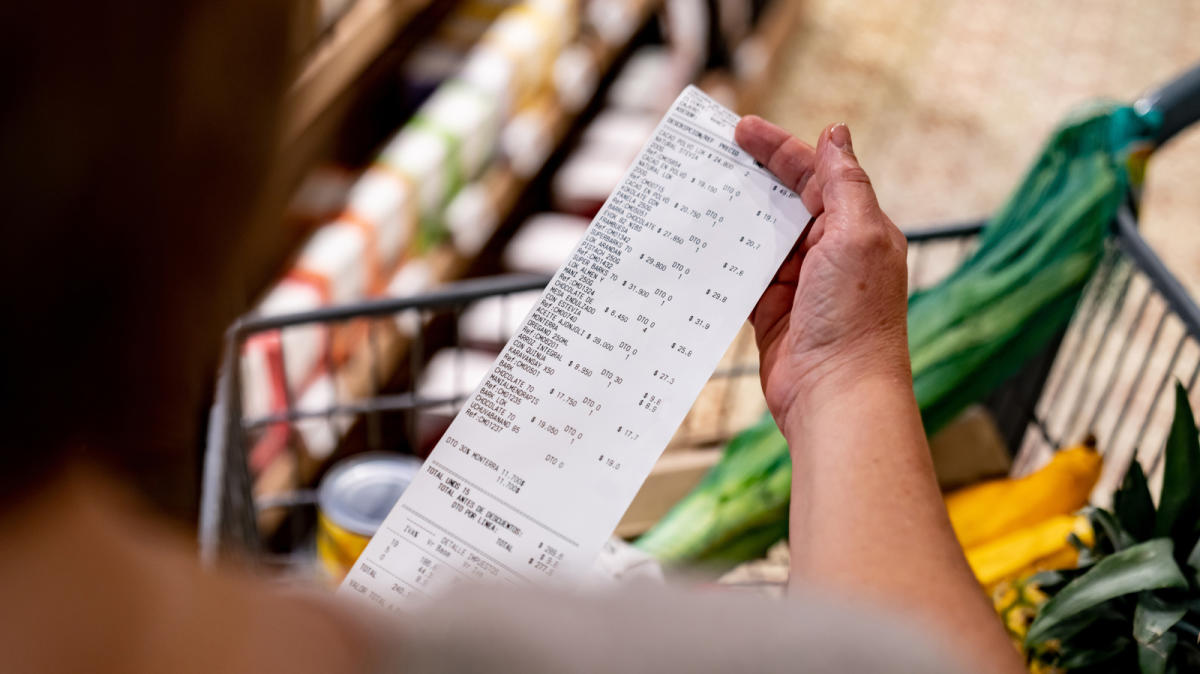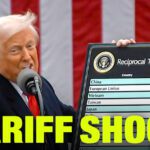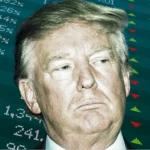President Trump’s sweeping reciprocal tariffs—rolled out on “Liberation Day”—have sent ripple effects across global supply chains and consumer wallets. While the administration promises the tariffs will bring factories and jobs back home, the immediate reality is that Americans may soon be paying more for everyday essentials—from their morning espresso to their next SUV.
The baseline tariff of 10% now applies to nearly all imported goods, with some countries facing rates as high as 54%, and certain industries already bracing for price hikes. Here’s a breakdown of what’s expected to get more expensive—and why.
Cars: +$2,000 to $20,000
The biggest headline grabber is auto tariffs. Trump confirmed a 25% tariff on all foreign-made vehicles starting midnight Thursday.
- Entry-level imported cars could cost an extra $2,000 to $5,000.
- Luxury and EV models? $10,000 to $20,000 more, according to Anderson Economic Group.
- Auto parts face new tariffs starting May 3, complicating pricing even for U.S.-assembled vehicles.
Ford says it will temporarily offer employee pricing to all customers, while Stellantis is halting production at facilities in Canada and Mexico, temporarily laying off 900 U.S. workers.
Coffee & Chocolate: Everyday Luxuries No Longer Cheap
Coffee beans primarily come from Brazil (35%) and Colombia (27%), both now hit with 10% tariffs. For a country where 80% of beans are imported, your morning brew could be brewing higher costs.
Chocolate fans aren’t spared either:
- Cocoa beans from Côte d’Ivoire, Ghana, and Ecuador: 10–21% tariffs
- Cocoa butter from Indonesia and Malaysia: 32% and 24% tariffs
Wine, Spirits & Booze: Cheers to Tariffs
- European wine (mostly from France & Italy): Now faces a 20% tariff.
- UK scotch whisky: 10% tariff slapped across the board.
- Mexican beer (think Modelo, Corona, Pacifico): Subject to 25% tariffs.
- Tequila imports: Impacted under broader agricultural tariffs.
The Scotch Whisky Association and Distilled Spirits Council have already voiced concern about higher prices and slumping sales.
Toys, Clothes & Fast Fashion: From Barbie to Temu
- 80% of toys sold in the U.S. come from China, hit with a 54% tariff. Mattel says it will raise prices on Barbie and Hot Wheels.
- Clothing from Bangladesh (37%), Vietnam (46%), India (26%), Cambodia (49%)—all targeted.
- Temu and Shein are now hit with de minimis rules, eliminating their duty-free privileges. Every item under $800 will face 30% extra charges or a $25 fee.
Furniture & Electronics: Chip Pain and Sofa Sticker Shock
- 29% of furniture is from China, 26.5% from Vietnam—both now under heavy tariffs.
- 34.5% of all electronics and telecom gear (laptops, TVs, components) come from China.
- Apple hasn’t confirmed price hikes yet, but Wedbush’s Dan Ives says pressure is building.
Groceries & Household Goods: Not Just Big-Ticket Items
- Meat, dairy, and grain from Canada now face 25% tariffs. PM Mark Carney has warned of higher milk, cheese, and egg prices.
- Avocados, tomatoes, strawberries—and $45B worth of Mexican agricultural products—are caught in the net.
The Bigger Picture
Trump’s economic team insists prices won’t rise dramatically. But industry groups, analysts, and importers paint a different picture. UBS estimates inflation could surge to 5%, and JPMorgan warns the inflation and consumption drag could bring the U.S. dangerously close to a recession.
Retailers and manufacturers have already started adjusting. Ford is holding the line (for now). But with retaliatory measures from China, the EU, and Canada pending, uncertainty—and costs—are only expected to grow.
Sources:
- Forbes: “Here’s What Will Cost More After Trump’s Tariffs”
- USDA, USTR, Anderson Economic Group, USITC
Disclosure: This article does not represent investment advice. The content and materials featured on this page are for educational purposes only.
Related: Trump Announces Tiered Tariffs on China, EU, India, Others — “This Is Just the Start”
‘No Winner In A Trade War’: China, EU And Others React To Trump’s Reciprocal Tariffs










